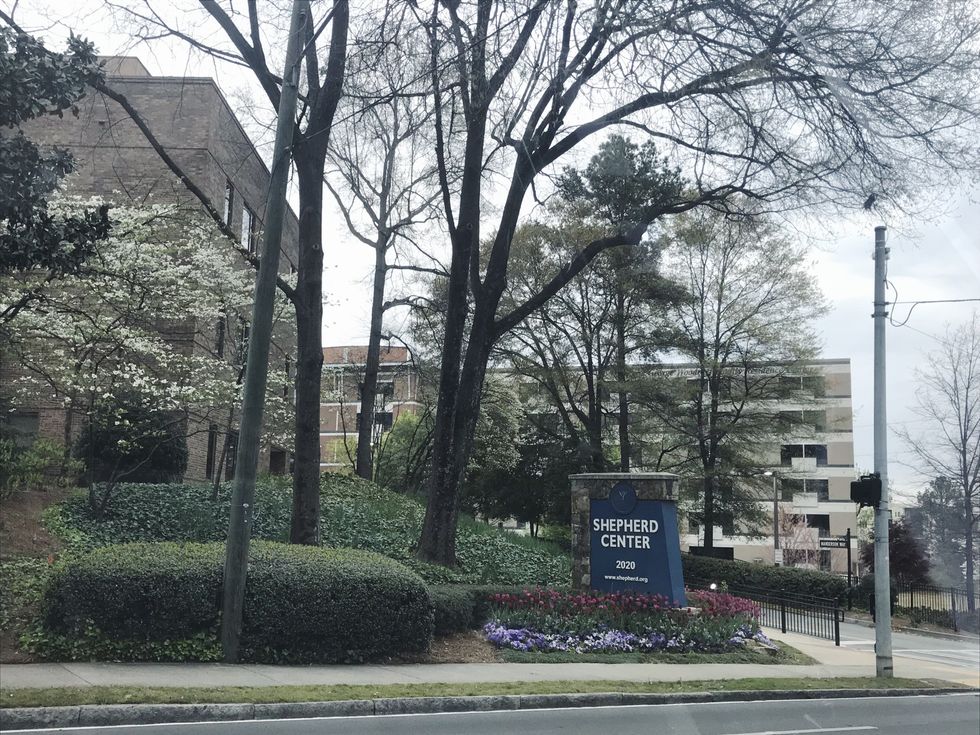This spring semester, I started working at The Shepherd Center in Atlanta. The Shepherd Center is one of the nation's top 10 rehabilitation hospitals. It treats around 900inpatientst from all over the US and the world, and specializes in treating spinal cord and brain injuries.
I applied at the end of last semester to work and volunteer in one of their physical therapy gyms. In fact, I got the inspiration to write my "career soulmate" article from attending the volunteer orientation and taking a tour of the hospital. I was in awe of the facilities, professionalism, and expertise of the staff. After lots of paperwork and an interview, I started working as a gym runner in one of the Shepherd Center's Spinal Cord Injury Physical Therapy gyms. It has been eye-opening and humbling.
Every Tuesday and Thursday, I work from 9 am - 12 pm. The physical and occupational therapists treat patients while I run around grabbing anything they need, cleaning work stations, sanitizing physical therapy equipment, and collecting personalized wheelchairs for the patients. While I am learning a huge amount about this specialized form of physical therapy, I have also learned so much about the psychological side of these traumatic injuries.
You would think that these patients, who are almost all paralyzed in some capacity, would be extremely negative and frustrated. But it's quite the opposite. Of course, as everyone does, they have their good and bad days but for the most part, they have a positive attitude and happy demeanor. They have each formed personal relationships with their therapists and easily converse about their daily lives.
Recently, I had the pleasure of witnessing a Shepherd Center graduation. The patient's family members flew in from out of town to be there for the transition of this inpatient to an outpatient facility. Tears were streaming down each of their faces as the longest, toughest period of the injury was ending and a new chapter was starting. You could see the pain on their faces that their loved one's injury had caused for all of them, not just the patient. But the support of great physical therapists, nurses, and other staff helped them maintain hope through the trauma.
I have learned so much from the SCI patients at Shepherd but I think the most important one is simple: sometimes the things you want most in life take the most time. Nothing worth having happens instantly, it takes time and hard work. I listened to a sermon at church recently that said that "we live in a microwave age." We want everything to happen right away and get frustrated when it takes a long time to see the hard work pay off. But the Shepherd Center patients have taught me how patience, hard work, and a positive attitude can make the biggest difference in the recovery process.
So far, I have loved my experience working at a rehabilitation hospital. Not only will this better prepare me for my career as a physical therapist but it will also help me become a more compassionate, and grateful person. The Shepherd staff are changing lives on a daily basis and I am proud to be able to do something to help, no matter how small that something might be.

















